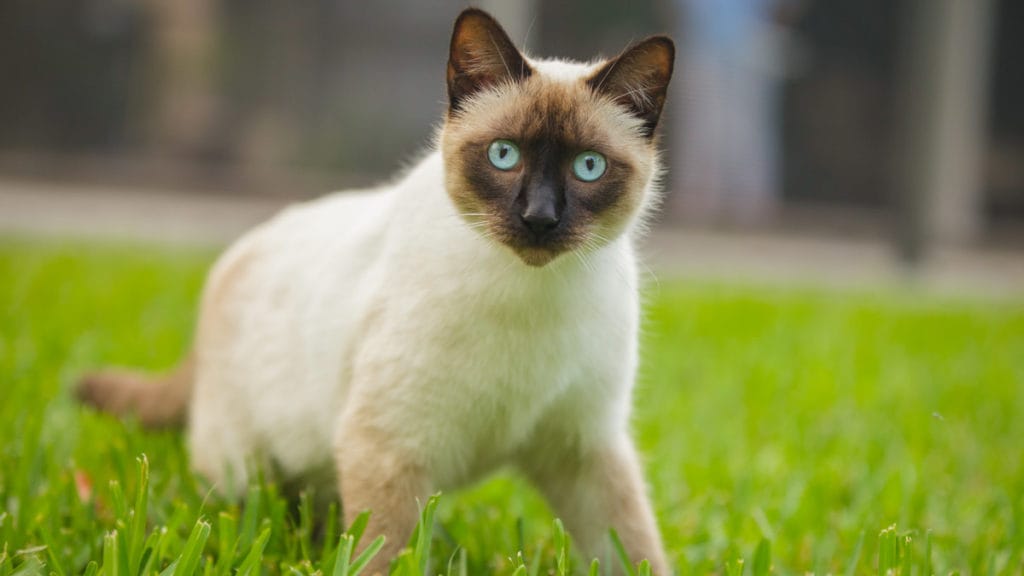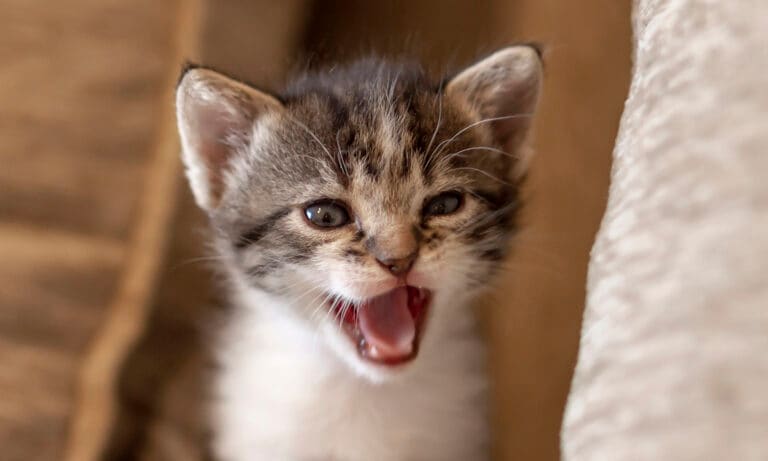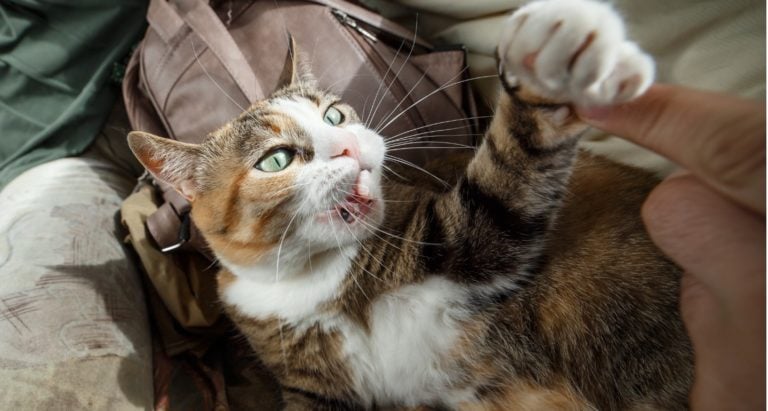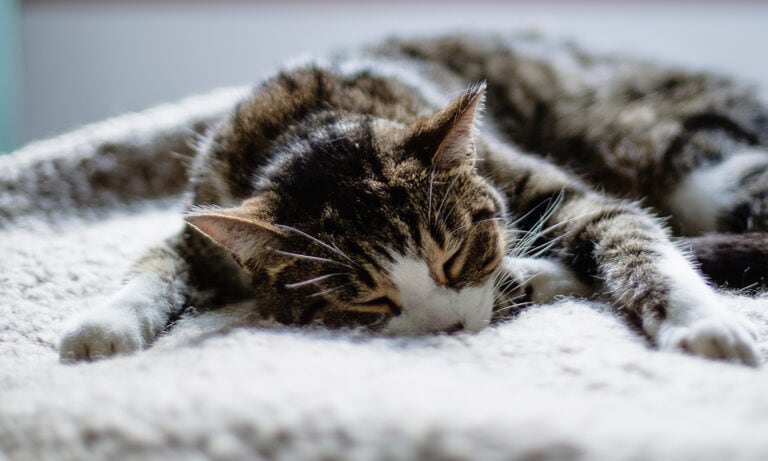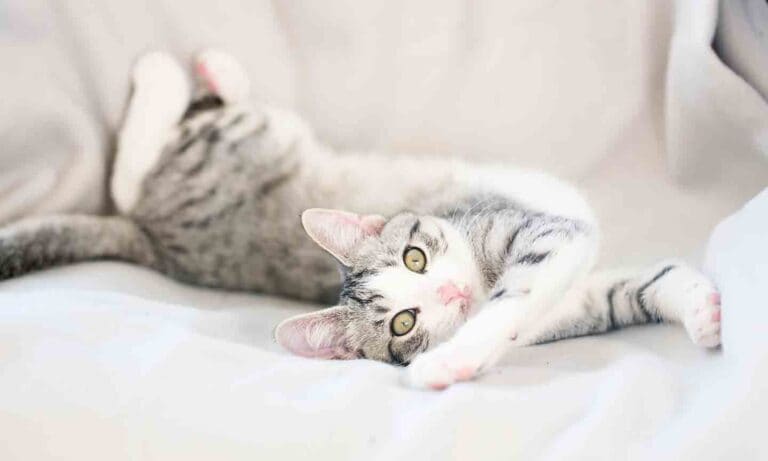As a cat parent whose furry friend has only ever spent her time indoors, I’ve often wondered if Penny would enjoy it if I let her outside from time to time, or if that would just be a terrible idea. While some owners feel strongly one way or the other—that all cats should remain indoors or that cats deserve to spend some time outside—others may let their cats decide for themselves.
If you’re on the fence about what to do with your own cat, consider the pros and cons of indoor vs outdoor cats from Pam Johnson-Bennett, cat behavior expert and author of Think Like a Cat: How to Raise a Well-Adjusted Cat – Not a Sour Puss.
The Pros and Cons of Indoor vs Outdoor Cats
When it comes to indoor cats vs outdoor cats, the best way to make a decision is to weigh the pros and cons. If your major concern with keeping your cat inside is that indoor cats become bored cats, Johnson-Bennett says there is a way around that. “All the positives of being outdoors that you’d put in the ‘pros’ column can be achieved indoors if cat parents educate themselves on what cats need,” she said.
Providing stimulating cat toys and “trees” for adventure and play—like the Frisco 52-Inch Cat Tree or the KONG Naturals Cat Scratcher—gives your indoor cat many of the same benefits of outdoor recreation, and will keep your furry friend from becoming a bored cat with nothing to do. Plus, “you’ll have the added benefit of keeping your cat safe,” says Johnson-Bennett.
The negatives of having an outdoor cat—potential injury from cars or other animals, getting lost, or contracting other outdoor-only health issues like frostbite, heatstroke or sunburn—aren’t things you’ll have to worry about if you keep your cat inside.
How to Best Protect Your Outdoor Cat
If you’ve weighed the pros and cons and believe that your cat would be living his best life if he’s allowed outside, there are some things you’ll need to consider. “If you allow your cat outdoors, it’s crucial to have identification on the cat,” says Johnson-Bennett. “Collars and tags can get removed, so the most reliable form of ID is the microchip.”
An outdoor cat must also be fully vaccinated, and should be on a careful routine for flea and tick prevention. Feline heartworm protection should also be included, says Johnson-Bennett, and regular de-worming, since you can’t control whether he hunts and ingests his prey.
Additionally, “with an outdoor cat allowed to roam freely, you have no control over what he eats, so if your cat is on a special diet or if you feed him a top-notch food, he may still go over to the neighbor’s house and eat the … food left out for local community cats or strays,” Johnson-Bennett added. If you believe your outdoor cat may be eating different foods while he roams around, you might want to try feeding him a special addition to his diet—like Purina Pro Plan Veterinary Diets FortiFlora Probiotic Cat Supplements—to help promote intestinal health and balance, as well as a healthy immune system.
Finally, you’ll need to consider the weather if you have an outdoor cat. Cats are prone to sunburn, heatstroke and frostbite, says Johnson-Bennett, so when the weather is especially adverse, it’s probably best to keep your pet indoors. During nice days, you can still provide your outdoor cat with shelter, shade and even heat, if need be, with an outdoor cat house, like the K&H Pet Products Outdoor Heated Kitty House.
If you do choose to let your cat outside, make sure he has access to the indoors at all times. He should also have clean, fresh water available to him. It’s also a good idea to supervise your cat while he roams outdoors.
Are Certain Cats Better Suited for Outdoors/Indoors?
More than breed, consider cat behavior, age, health, physical limitations, and where you live when deciding if your cat should stay inside or not. “Common sense should rule here,” says Johnson-Bennett. “The particulars of each situation (whether you have an outdoor cat or an indoor cat) can shape your cat’s behavior for the positive or the negative.”
In general, cats need safe access to resources, a feeling of a secure territory, and the ability to engage in daily activities without feeling threatened. “Socialization plays an important role in personality, confidence and trust,” she adds. “Regardless of whether your cat is outdoors or indoors, it’s extremely beneficial to socialize him and help him become comfortable with humans and with being handled.”
Having an indoor cat vs an outdoor cat shouldn’t affect your relationship with your cat if you don’t let it. “The more time you spend with your cat, the more influence you will have over his personality, and the more trust-building you can do,” says Johnson-Bennett. “Whether you have an indoor or outdoor cat, it’s still a relationship, and you have to do your part to nurture that.”
Get more tips for a safe and happy cat
Share:
